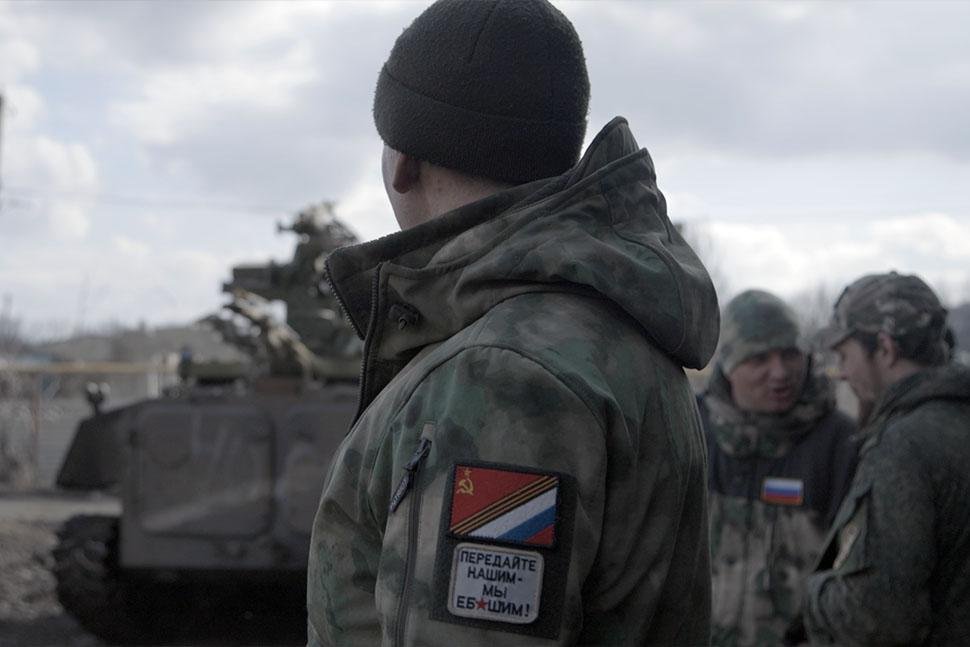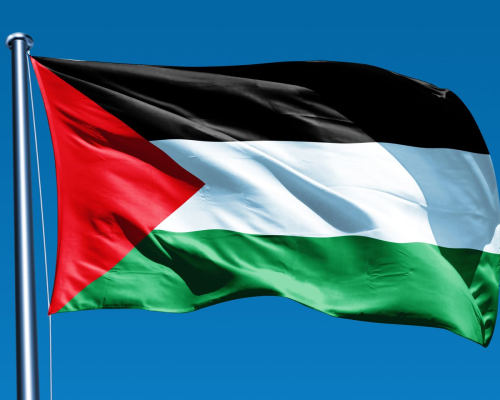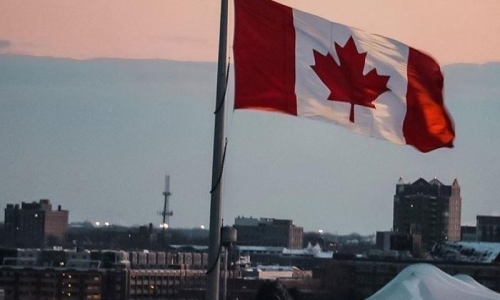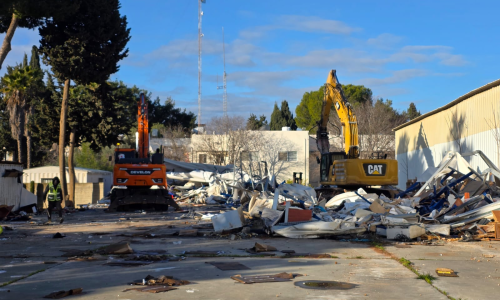By Taghreed Saadeh
Amid the storm of controversy sparked by the premiere of “Russians at War”, directed by Russian-Canadian filmmaker Anastasia Trofimova at the Toronto International Film Festival (TIFF) in September 2024, the film marked a striking breach in Canada’s prevailing narrative on the war between Ukraine and Russia. In a country whose government has offered Ukraine logistical, financial, and moral support, and whose media consistently frames Ukraine as the victim of “fascist Russia,” such a perspective stood out as unprecedented.
Since the war’s outbreak in 2022, international film festivals have routinely featured Ukrainian president Volodymyr Zelenskyy in official opening ceremonies, including at Cannes, Berlin, and Venice. This time, however, TIFF chose to showcase a film focused on Russian soldiers at the front lines, their emotions, frustrations, doubts about a seemingly futile war, and even glimpses into their private romantic lives.
TIFF was eventually forced to cancel the film’s official screening, a first in the festival’s history, following threats and protests led by the Ukrainian community in Toronto. Yet only days after its closing, the festival quietly organized two private screenings, reaffirming its support for the film despite the backlash.
Spanning two hours and eight minutes, the documentary presents the war through the eyes of Russian soldiers. Although the festival’s official synopsis described it as a story of disillusionment, soldiers realizing that Russian media had misled them and that they were fighting merely to survive, the footage goes much further. It suggests that TIFF’s summary may have been deliberately softened to temper reactions from a Western audience sympathetic to Ukraine.
The soldiers appear convinced they belong to the world’s second-strongest army and are portrayed as patriots, even fighting alongside Ukrainians who had joined Russian ranks. The camera travels from a Ukrainian village under Russian control to the self-proclaimed Luhansk People’s Republic, where many locals appear supportive of the Russian presence. One elderly woman declares she stayed because she loves Russians and believes the Ukrainian army would kill her if it returned. Russian soldiers are shown delivering her food and supplies. In another scene, a soldier tenderly cares for his cat amid ongoing battles.
The Russian flag recurs throughout the film, and President Vladimir Putin appears on television thanking “friends for supporting Russia in defending its ideal culture and national interests.” The soldiers deny committing war crimes, repeatedly invoking the notion of the “Russian Empire.” One soldier fires bullets at a Nazi symbol spray-painted on a wall, underscoring his justification for fighting. Another speaks of Ukraine’s civil war, while a graphic clip shows an unarmed Russian soldier being killed by Ukrainians.
The human side is not neglected: exhausted soldiers smoke and drink amid shelling, while the film closes with a love story between a frontline medic and a soldier that culminates in a marriage proposal and news of pregnancy. Despite the grim subject, the film uses striking visuals, including drone footage, to capture moments of both brutality and intimacy.
Outside TIFF venues, Ukrainian community groups staged fierce protests. Deputy Prime Minister and Finance Minister Chrystia Freeland, herself of Ukrainian descent, strongly condemned the film, asserting that Russia was violating international law and that there was no “moral equivalence” between the two sides. Her office stressed the issue was not the film’s existence, but the fact that it had been financed with Canadian public funds—despite containing scenes that downplay internationally documented war crimes and that conflate Ukraine with Nazism.
The film co-produced by Canada and France, received approximately $340,000 from the Canada Media Fund, with support from TVOntario. However, TVO later announced it would not air the film as initially planned. Ukraine’s Consul General in Toronto, Oleh Nikolenko, issued a lengthy statement condemning its screening, while Senator Donna Dasko raised the matter in Canada’s Senate, questioning why such a controversial project had received public financing.
Criticism also extended to Trofimova herself, who had previously worked for RT Documentary. Observers asked how she managed to remain embedded with Russian soldiers for seven months, especially given that the unit’s new commander had initially refused her presence.
Still, Trofimova found allies in Canada. Canadian Journalists for Free Expression argued that TVO’s withdrawal raised concerns about its independence. The Documentary Organization of Canada (DOC) released a statement supporting the film, describing it as anti-war.
Canadian media outlets gave Trofimova space to defend her work. POV magazine, which specializes in do cumentaries, published an interview in which she emphasized the film’s anti-war stance, portraying the chaos within the Russian army and the disillusionment of its soldiers. The magazine itself reiterated its clear support for Ukraine. In interviews with outlets including CBS Canada, Trofimova insisted her intent was not to take sides but to “bear witness to a grim reality.” She denied producing Russian propaganda, stressing the film was shot without official Russian authorization, something that could expose her to legal consequences in Russia.
Yet skepticism remained. Ethan Fleischer, bureau chief of The Hollywood Reporter, argued that while Trofimova succeeded in humanizing Russian soldiers, she failed to ask tough questions about war crimes. He criticized the film’s “soft framing” of soldiers’ feelings and noted the absence of a convincing explanation for how she was able to stay embedded with them for such an extended period in eastern Ukraine.
Ultimately, “Russians at War” is an attempt to reveal one facet of a conflict at a time when Western voices calling for an end to the war are growing louder. Whether dismissed as propaganda for the Russian military or praised as an anti-war statement, the film’s real value lies in its challenge to Canada’s prevailing narrative. While it may not surprise those who follow outlets like RT or Sputnik, it nonetheless stands as a provocative piece of filmmaking worth watching.








